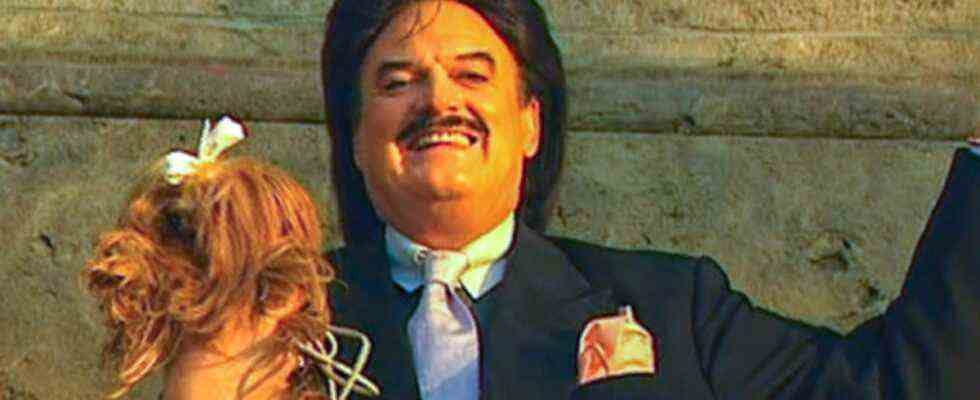It’s such a thing with superlatives: With constant use, even the biggest, the best, the very best doesn’t sound that great anymore. A well-known motivational speaker should also know this, saying about a well-known boutique owner from Maximilianstrasse: “He was the most famous Munich man of all time.” Erich Lejeune doesn’t seem to get any smaller; he cheers in a new one TV documentary about Rudolph Moshammer just those so high that one becomes completely different. Moshammer was a “very intellectual gentleman”, a “great marketer”, he was even able to draw. And after his violent Died January 14, 2005 reportedly “the whole town mourned”. Although this does not entirely correspond to one’s own memories, such exaggerations are necessary when the person to be portrayed has been somewhat forgotten and there is nothing new to report about them.
Mosi was young too: the German fashion designer Rudolph Moshammer in the bathtub.
(Photo: Otfried Schmidt)
In his later years, Rudolph Moshammer was the media phenomenon “Mosi”, but he became known as a fashion designer. This is remarkable in that it was difficult to reconcile his creations with the term fashion even in the 80s, when taste was uncertain. This was only made up for by the fact that he wasn’t a maker either – most of the squeaky colorful and flashy parts were bought in and modified slightly. The television audience has known all this since the ARD film at the latest “The Great Rudolph” from 2018, with Thomas Schmauser in the title role. For the almost hour-long documentary “Rudolph Moshammer – The King for Sale”, which the streaming service RTL + had produced for the 17th anniversary of his death, something new had to be thought of – archive recordings and statements by companions such as Roberto Blanco, Birgit Bergen or Michael Graeter are enough today no longer.
The drag queen “Bambi Mercury” leads through the film
So they sent a young man from Berlin, who appears as a bearded drag queen with the beautiful name “Bambi Mercury”, to Munich. There he struts through the Hofgarten like a dolled-up mixture of King Ludwig II, Mosi and Graf Zahl, makes a pilgrimage to the mausoleum in the Ostfriedhof or drives through Maximilianstraße in a Rolls Royce. In addition, he acts as a Moshammer connoisseur, even if, due to his age, he only knows them from hearsay.
Rudolph Moshammer (left) with his cheetah in his shop in 1968.
(Photo: Otfried Schmidt)
“Without him, things might have turned out differently,” speculates Bambi Mercury. Mosi has never come out, but there have been a lot of rumors about his homosexuality – that’s something too. In this respect, one could describe him as a pioneer for the LGBTQ scene. “Today the world is more open,” says the young man from Berlin, “today you can talk about your sexuality.” But you could do that decades ago, other celebrities from far less dazzling circles of society have shown it.
Rudolph Moshammer didn’t want what is okay, nobody should be forced to come out. But when you see an archive recording in which he complains about how terrible it is when someone has to buy sexuality, the whole thing takes on a tragic note. When he drove through town at night in a Rolls Royce and offered young men money for sexual favors – in the end such an arrangement cost him his life. “I had always hoped that he would do more for the homosexual scene,” says restaurateur Dietmar Holzapfel in the documentary. Moshammer didn’t do that. He was interested in staging his own fictional character, he wanted to be popular and known beyond the city limits, to stand up for the homeless, to perform with fine ladies or to cuddle with Daisy the dog.
The most important woman in his life: Mother Else.
(Photo: dpa)
In his best days, Mosi was a well-known Munich resident, maybe even the best known. As a pioneer for the LGBTQ community, which stands for an open approach to gender identities, for variety, diversity and against self-denial, he is a miscast.

